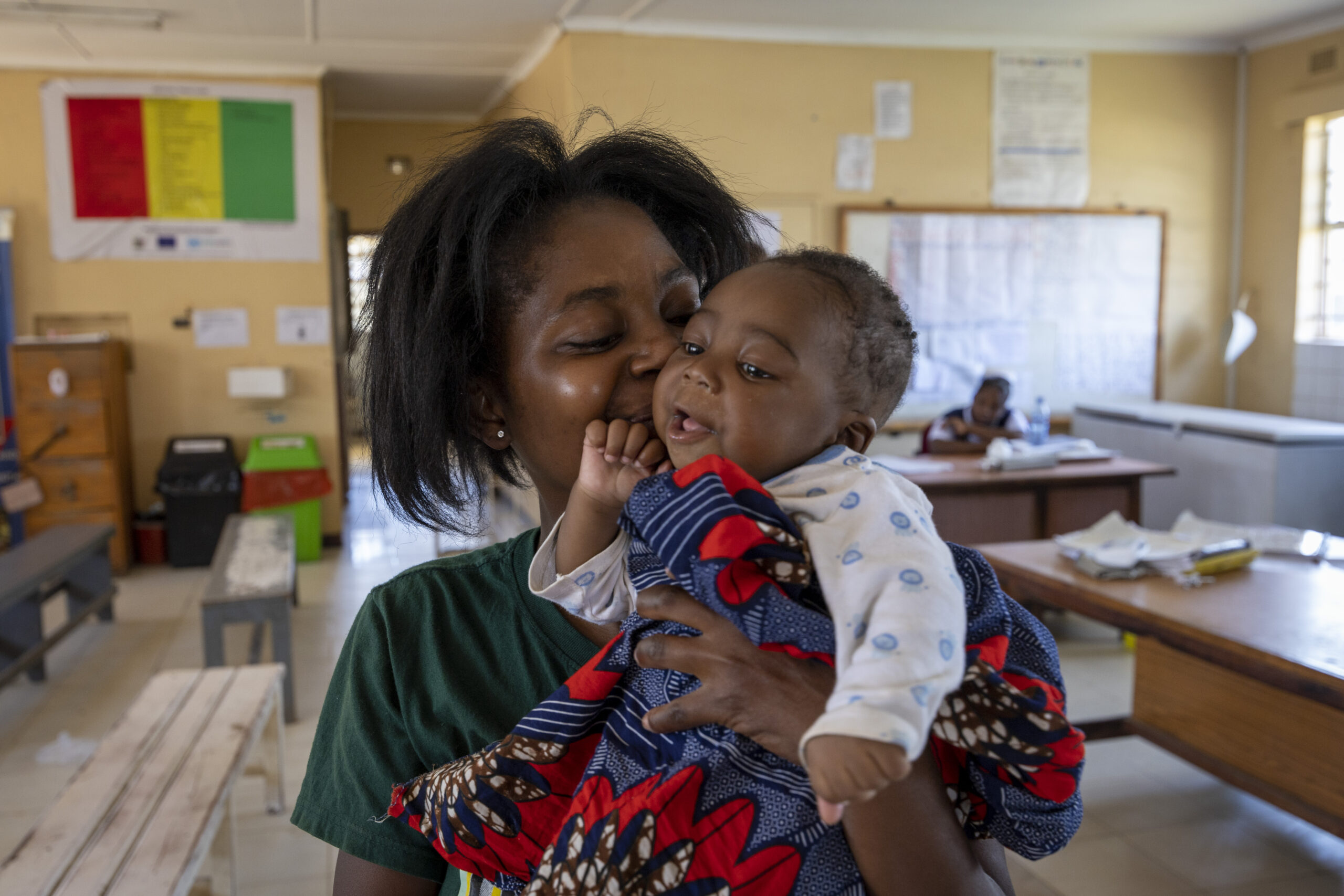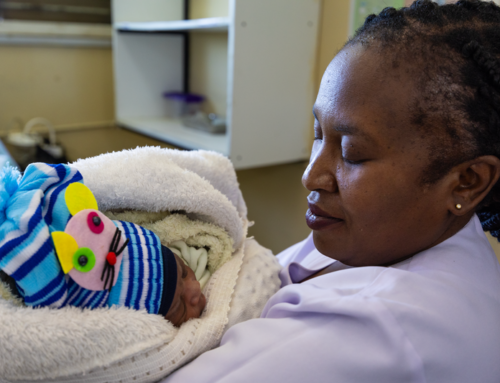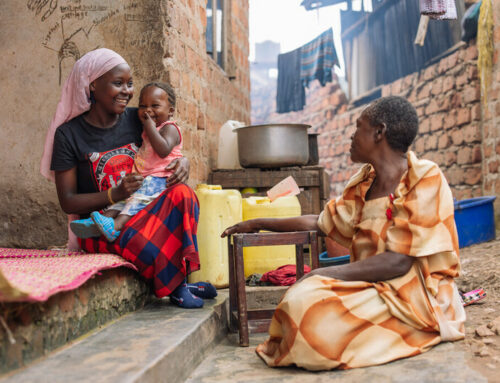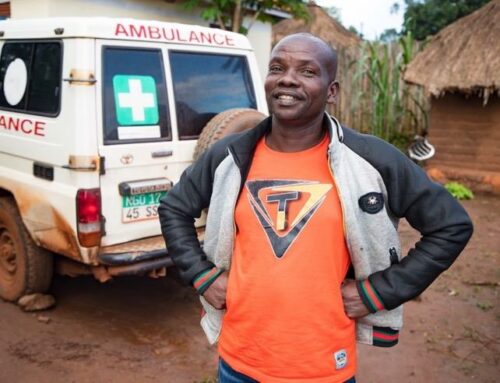Field Updates
Parenting after you lose your life partner: Meet Hope
Story by Wesley Koskei
It is hard to comprehend the devastation of loss. But you might get a sense of it after meeting a young mom of 3 boys named Hope, who lost the love of her life – her husband – after learning she’s a few weeks pregnant with her third child. “We married in 2008 and didn’t have children until five years later. My first son, Francis, was born in 2014, and my second, Ebenezer in 2016. We lived a happy life together until 2022. That’s when he died. It was sudden. He never got sick; we just woke up one morning, and he started having seizures. That was the cause of his death. Life hasn’t been easy since then, without him, especially since I was pregnant. The realization that I was carrying a pregnancy without him was heavier than I could bear,” she says.
Every night, after Hope puts her now 6-month-old baby to bed, she feels a sense of heaviness and loneliness in her heart. But the sight of her two boys doing their homework gives her solace. When she speaks about her boys, she has a spark of light in her eye, with a gleam of tears. Now a young widow, her three boys give her the strength to go on. “My children are my pride. I love them. When I look at them, they give me courage. I really want them to reach [new] heights. So, everything that I do, I do it for them.”
Each of her pregnancies was different. Her first pregnancy was particularly challenging, and she blames her lack of information. She did not attend prenatal sessions or receive any health education. On her eighth month, she woke up to heavy bleeding and was rushed to the hospital as an emergency case. “To save both the baby and me, I had to undergo an emergency surgery.” In a fight for her life at the hospital, one day blended into the next in a tired blur for weeks. She couldn’t hold her baby for several weeks after surgery, and her motherly instincts grappled as blinding headaches denied her the privilege of breastfeeding her first child.
“Looking back, I was naïve as a new mother and did not know many things,” she says. “One of us would have died because the clots and bleeding were too much. Had I gone for early prenatal sessions and checks, I would have avoided the emergency.”
During her post-natal sessions after the life-threatening pregnancy, she was connected to Josephine. Josephine, a CHW for Amref’s Closing the Gap project, walked with Hope through her recovery. Part of the project’s goal is to help eliminate preventable maternal and neonatal deaths. She educated Hope on reproductive health, danger signs to look out for in subsequent pregnancies, the causes of these conditions, and what to do if these symptoms appear during pregnancy.

Photo of Hope and her youngest son, Blessing. Photo Credit: David Brazier.
For her most recent high-risk pregnancy, when Hope lost her husband, Josephine supported and counseled her throughout what she describes as “an impossible period.” Having just lost her husband, she was more anxious, worried, and ambivalent about her pregnancy. “I was left pregnant, so carrying the pregnancy without him was not easy. I had other thoughts in mind,” she says.
When the time for delivery came, she was nervous. But despite a challenging year, there was joy in the labor ward as she welcomed another boy named Blessing. Since Blessing’s birth, Josephine has frequented Hope’s home for post-natal checkups. “She ensures I am breastfeeding okay, provides us with mosquito nets, and finds out whether we have any challenges,” Hope shares.
Hope has been educated on nutrition, contraception, lifestyle choices, safe sex and sexually transmitted infections, mental health services, and newborn care and parenting. Providing health education to mothers like Hope during pregnancy is an important aspect of prenatal care as it has been shown to reduce prematurity and low birth weights and increase successful births.
All women need access to high-quality care during pregnancy and during and after childbirth, but supporting mothers like Hope is also the best thing a community can do. The most common causes of maternal injury and death are excessive blood loss, infection, high blood pressure, obstructed labor, and indirect causes such as anemia, malaria, and heart disease. These complications account for nearly 75% of all maternal deaths.
Information and quality pre- and post-natal care, especially for rural women, can make the difference between life and death for women and their newborns.




